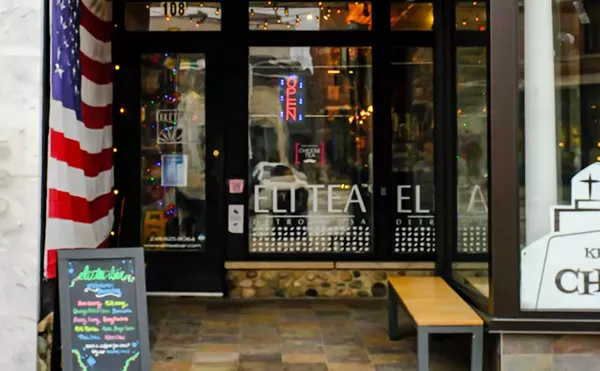Native Detroiter Bill Loomis was a longtime resident of the city’s North Rosedale Park neighborhood. He has written for publications as varied as Michigan History, The New York Times, Hour Detroit and The Detroit News. His new book, Detroit Food, came out last month, and we were delighted to have the opportunity to talk with him about it.
Metro Times: So, what was the genesis of this book?
Bill Loomis: Well, I did a book in 2012 called Detroit’s Delectable Past, on the history of Detroit food. The people who did that book said, “Why don’t you do something on the contemporary food scene?” And in fact, my editor said, “What makes Detroit so cool?” That’s literally what he said. “Why do I keep reading about Detroit in The New York Times and stuff?” And this was prior to the bankruptcy. So, that was about as much as I was given, in terms of content, but that was really what got it started.
MT: I notice that you tied together the idea of Detroit’s rebirth with sort of the primacy of food. It’s one of those things where you might not need. say, a big, national bank or a trendy, national clothing store but everybody needs to eat.
Loomis: Yeah, exactly. And it attracts such a variety of people. They’re not just banker types or MBAs or anything. I mean, these are people from all types of backgrounds and training. Food connects people, and I found that with the historical book and I found that with the contemporary book. It really does bring people together.
MT: Maybe in Detroit the cost of entry is a bit lower and people can test out these ideas that really would require intensive capital to try out in a suburban environment.
Loomis: Oh, yeah. Absolutely! That’s what draws a lot of them here. There’s several from Toronto. For instance, the couple that owns the Brooklyn Street Local. You know, it’s just so competitive and so prohibitive to open something in Toronto that they were delighted that they got going for very low investment. And, a lot of these people too, their idealism is contagious. It’s not just food, it’s transforming a neighborhood. And, literally, it does. It make a huge difference, some of the things they’re doing.
MT: Walkability is one of the big draws of the city is, when you can walk to the corner and get a cup of coffee. But you do need someplace to walk to.
Loomis: [laughs] Good point. Yeah, absolutely. Suddenly, there’s Mudgie’s or there’s a place to go hang out in, and it just brings people together. I’ve found that even a coffee shop makes such a huge difference to an area. I was really impressed. These aren’t people who want to open a little Dairy Queen in Troy. There’s much bigger vision in their eyes, that’s for sure.
MT: And that’s a function of how the book was very tightly focused on the city.
Loomis: Yeah, that was one of the guidelines I had. For this project, they were not interested in the greater metro area. I really do think that, especially surrounding Detroit, there’s so many people who know so little of what’s going on, and so I thought it was a good idea to keep it restricted just to the city.
MT: And sometimes, you did have to make these little detours into the past to talk about, say, the coney islands downtown or Potato Patch Pingree …
Loomis: Yeah, I can’t help but do that. I write history pieces for the Detroit News a lot and I just keep going back to that. I find it helps me understand a little bit better what Detroit food is about. The title of the book was not my title, but when it came out, the first thing almost every person asked me was, “Well, what is Detroit food? So, I started asking some of the people involved with it, the chefs, the people making the food and cooking food what they think Detroit food is and that was just a few of the interesting things that kind of came out of this.
MT: And the photography is very attractive in the book.
Loomis: Isn’t it? I thought he did a great job. I’ve worked with Ankur [Dholakia], he was with The Detroit News and he and I would work on articles for the paper. People really love his photos and I do too. I think they’re terrific.
MT: So, what else do you have in the works?
Loomis: We’re doing a historic dinner with Zingerman’s in April based on Detroit food. Amy Elliott Bragg and I have been talking about doing a pop-up based on historic Detroit recipes. I think that’s going to be a ton of fun. There’s a lot of food in Detroit that people aren’t even aware of, these things were once a really big deal and they just kind of get forgotten. So, we’re going to try to do some of these dishes that were lost. We’ve got a date and a location in Ann Arbor, and we’re aiming for 40 or 50 dinners.
Loomis will speak and sign copies of his book 1-4 p.m. Saturday, March 8, at the Grosse Pointe Historical Society’s Provencal-Weir House, 376 Kercheval Ave., Grosse Pointe Farms; 313-884-7010; gphistorical.org.
The Detroit food dinner is scheduled for 7-8:30 p.m. Wedesday, April 9. Details will be available on the Zingerman’s Deli website at zingermansdeli.com.







